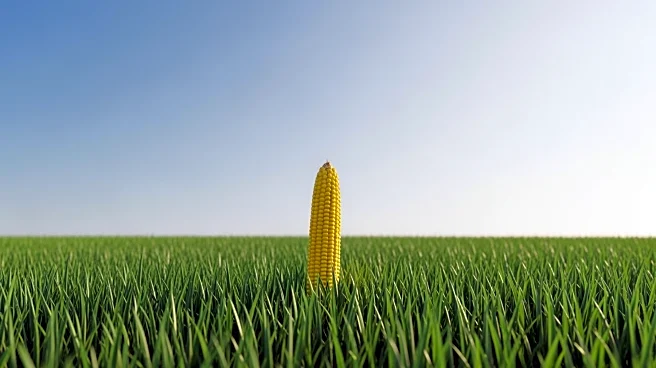What's Happening?
Several agriculture stocks have been identified as promising investment opportunities, according to a recent analysis. Companies such as Deere & Company, Corteva, Bunge Global, Cal-Maine Foods, Valmont
Industries, Gates Industrial, and CEA Industries are noted for their significant trading volumes. These stocks represent various segments of the agriculture industry, including equipment manufacturing, seed and crop protection, agribusiness, food production, and infrastructure services. The performance of these stocks is influenced by factors such as weather conditions, crop yields, commodity prices, global demand, and government policies. Deere & Company, for instance, is involved in manufacturing equipment for agriculture and other sectors, while Corteva focuses on seed and crop protection technologies. Bunge Global operates in agribusiness and food production, and Cal-Maine Foods specializes in shell eggs. Valmont Industries provides infrastructure and agriculture products, Gates Industrial offers industrial solutions, and CEA Industries focuses on environmental control technologies for agriculture.
Why It's Important?
The agriculture sector plays a crucial role in the global economy, and the performance of agriculture stocks can significantly impact investors and stakeholders. These stocks offer exposure to agriculture-driven revenue, which can be cyclical due to external factors like weather and commodity prices. Investors looking to diversify their portfolios may find these stocks appealing, especially given their potential for growth in response to increasing global food demand and technological advancements in agriculture. Companies like Deere & Company and Corteva are at the forefront of innovation in agricultural equipment and seed technology, respectively, which could lead to enhanced productivity and profitability. The focus on sustainable and specialty food production by companies like Cal-Maine Foods also aligns with growing consumer preferences for organic and environmentally friendly products.
What's Next?
Investors and analysts will continue to monitor these agriculture stocks for performance trends and market reactions. Factors such as government policies, technological advancements, and shifts in consumer demand will play a significant role in shaping the future of these companies. As global demand for food and sustainable agricultural practices increases, companies in this sector may see opportunities for expansion and innovation. Additionally, the impact of climate change and environmental regulations could influence operational strategies and investment decisions. Stakeholders will likely keep a close watch on developments in these areas to assess potential risks and opportunities.
Beyond the Headlines
The agriculture industry is undergoing a transformation driven by technological innovation and sustainability concerns. Companies are increasingly adopting precision agriculture techniques, which utilize data and technology to optimize farming practices. This shift not only enhances productivity but also addresses environmental challenges by reducing resource usage and minimizing waste. Furthermore, the focus on specialty and organic food production reflects changing consumer preferences and ethical considerations. As these trends continue, the agriculture sector may experience long-term shifts in business models and market dynamics, influencing investment strategies and policy decisions.









